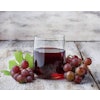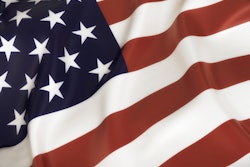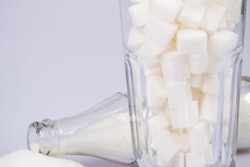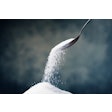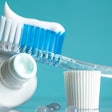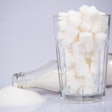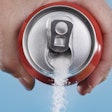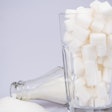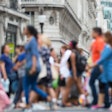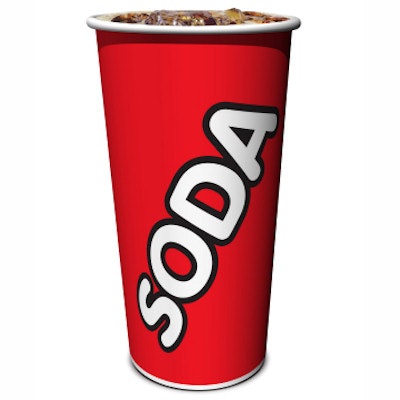
Maybe cities such as Philadelphia and Berkeley, CA, are on to something.
Those cites and countries such as Mexico and the U.K. have instituted or will institute a tax on sugar-sweetened beverages (SSB). But there's never been an economic evaluation done to determine if a tax on these beverages would contribute to a reduction in caries and oral healthcare treatment costs and also increase tax revenue. Researchers from Germany and New Zealand sought to estimate these factors in their study in the Journal of Dental Research (September 26, 2016).
"Such a tax would be especially effective among intensive SSB consumers, such as people in low-income groups," wrote the authors, led by Dr. Falk Schwendicke from the department for operative and preventive dentistry at Charité Centre for Dental Medicine in Berlin.
Worldwide prevalence
“Such a tax would be especially effective among intensive SSB consumers, such as people in low-income groups.”
Fermented sugars, such as those in soda and other beverages, have been well-established as contributing to the worldwide prevalence of dental caries and obesity. Children, adolescents, and those of lower socioeconomic groups are often major consumers of these products, so some cities and countries, including Philadelphia and Berkeley, CA, as well as Mexico and others, have instituted a tax on these beverages.
Mexico's tax is 10%, Philadelphia's is 1.5¢ per ounce, and Berkeley's is 1¢ per ounce. Some reports from Mexico are urging that country to double that percentage. Sen. Armando Ríos Piter, representing the state of Guerrero in southwestern Mexico, was quoted in the Financial Times on August 18 urging an increase in the tax to fund more drinkable water.
"What you don't want, if you're defending the interests of the poorest and the most marginalized, is for them to consume something that ends their lives," Piter said. "We need to give them an alternative."
Tax impact on caries, treatment costs, and revenue
The authors of the new study wanted to estimate the impact of a tax on sugar-sweetened beverages on dental caries and related treatment costs, as well as the resulting tax revenue in Germany. They used a model-based approach to make their estimations. Using 2015 data, they predicted that altered sugar consumption would affect the number of new carious lesions and related treatment costs. A change in consumption of these beverages would also impact the revenue and tax collected, they noted.
The researchers predicted that consumption and caries risk differed according to household income and that sex and age also had to be accounted for. They simulated the 2015 German population ages 14 to 79 and followed them for 10 years, using a 20% tax for the model.
The authors reported that daily sugar consumption dropped in most age and income group measured until the age of 50 (see table below). The biggest decrease was in the male, lower-income, 20- to 29-year-old group. In men, both the 60 to 69 and 70 to 79 age groups saw small increases in daily sugar consumption.
In women, the numbers were less uniform, as lower-income groups showed decreases in daily sugar consumption until age 50, but almost all the middle- and high-income age groups showed slight increases in daily sugar consumption.
| Mean (SD) change of daily sugar consumption (gram/capita) at 20% SSB tax | ||||||
| Male income | Female income | |||||
| Age group (years) | Low | Middle | High | Low | Middle | High |
| 15-19 | -6.3 | -0.2 | -1.4 | -5.7 | 0.5 | -0.4 |
| 20-29 | -13.7 | -6.8 | -5.3 | -4.1 | 2.2 | 1.2 |
| 30-39 | -10.3 | -4.6 | -3.5 | -1.2 | 2.6 | 1.8 |
| 40-49 | -4.8 | -1.1 | -1.3 | -1.5 | 1.6 | 1.0 |
| 50-59 | -1.2 | 1.5 | -0.1 | 1.8 | 2.5 | 1.5 |
| 60-69 | 1.0 | 1.7 | 0.8 | 2.0 | 2.8 | 1.8 |
| 70-79 | 0.9 | 1.8 | 0.7 | 1.7 | 2.7 | 2.2 |
Overall, the authors estimated that a 20% tax on sugar-sweetened beverages would reduce the total number of new carious lesions, reduce overall treatment costs by almost a million euros, and add almost 38 billion euros in tax revenue over a 10-year period.
Limited reductions
The authors recognized that in some groups, sugar consumption increased after the theoretical tax was imposed. They attributed this to larger volumes of fruit juices not entirely offset by reductions in the consumption of sugar-sweetened beverages.
A wider perspective on all diseases affected by sugar consumption should be undertaken and then compared with the effects of other possible measures, such as advertising bans, labeling regulations, and increased healthcare education, the authors wrote.
"No study has yet estimated the effects of an SSB tax on dental caries and related treatment costs," the authors wrote. "Accordingly, we aimed to provide estimates of the health effects and costs and to quantify the potential revenue from such a tax in Germany."


